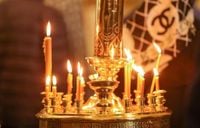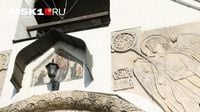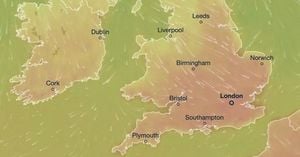The upcoming religious holiday of Krasnaya Gorka, also known as Antipaskha or Fomin's Sunday, will be celebrated on April 27, 2025. This holiday, which falls exactly one week after Easter, holds significant cultural and spiritual meaning within the Orthodox Christian community. It is a day dedicated to commemorating the appearance of the resurrected Jesus Christ to his apostles, particularly the Apostle Thomas, who famously doubted the resurrection until he could see and touch Christ's wounds.
According to Pavel Ilyinsky, a priest, the name Krasnaya Gorka translates to "beautiful hill" in Russian, where the term "krasny" means "beautiful." This holiday marks a time for celebration and folk festivities, as it comes after a period of fasting during Great Lent, which prohibits revelry, weddings, and other celebrations. Ilyinsky explains that Krasnaya Gorka allows people to relax and indulge in earthly joys following the solemnity of Lent and the spiritual focus of Bright Week.
To determine the date of Krasnaya Gorka in 2025, one simply adds seven days to the date of Easter, which is observed on April 20 that year. Thus, Krasnaya Gorka will take place on April 27, a day that represents the joyous affirmation of faith, as it recalls the moment when Thomas declared, "My Lord and my God!" after witnessing Christ's resurrection.
Traditionally, several customs and prohibitions accompany this holiday. On Krasnaya Gorka, it is advised that individuals refrain from engaging in hard labor, household chores, or gardening, as doing so is believed to bring misfortune. Instead, the day encourages joyful gatherings with family and friends, where hospitality is paramount. It is customary to prepare abundant meals and invite guests, as the more generous the spread, the more favorable the year is thought to be.
Moreover, the day is characterized by a spirit of positivity, discouraging any form of quarrels, sadness, or negative emotions. Instead, participants are encouraged to embrace joy and community. Visiting cemeteries is generally avoided on this day, as Radonitsa, another holiday dedicated to honoring the deceased, is specifically designated for such remembrances.
The significance of the holiday is further enriched by its historical roots. The term "Antipaskha" derives from the Greek word "anti," which can mean "opposite" or "instead of." In this context, it signifies a day that reflects on the celebration of Easter, reiterating the importance of resurrection and faith. Fomin's Sunday, another name for Krasnaya Gorka, references the biblical story of Thomas's doubt and subsequent belief, emphasizing the theme of faith and understanding.
In folk traditions, Krasnaya Gorka was originally celebrated by pagan communities as a spring festival. People would gather on hills to welcome the arrival of spring, engaging in festivities that included singing, dancing, and communal feasting. After the Christianization of Russia, the holiday was adapted to fit within the Orthodox calendar, now celebrated as a Christian feast day.
As the holiday approaches, many people will also prepare by painting eggs, though the colors have shifted from the traditional red of Easter to brighter hues such as yellow and green for Krasnaya Gorka. Rolling these eggs down hills is a popular game, symbolizing the joy of the season and the hope for a bountiful harvest.
Weather predictions hold a special place in the customs surrounding Krasnaya Gorka. For instance, if the day is rainy, it is believed to signify a good harvest, while clear weather could indicate a hot summer ahead. Additionally, various omens associated with the day suggest that actions taken on this holiday can influence personal fortunes, such as the belief that a broken glass could herald the arrival of a child.
Overall, Krasnaya Gorka is a vibrant celebration that brings together themes of faith, community, and the joy of life. As Orthodox Christians prepare to observe this significant day on April 27, 2025, they will reflect on the resurrection of Christ, the importance of family ties, and the beauty of springtime renewal. The holiday serves as a reminder of the enduring power of faith and the joy found in communal celebrations.





